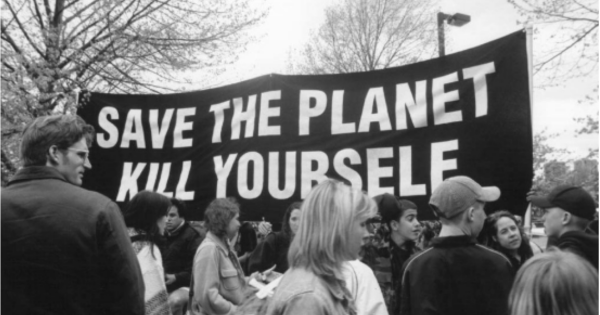
Radical environmentalist David Buckel showed his love for the planet earlier this year by lighting himself on fire in Brooklyn’s Prospect Park. This was supposed to be a protest against climate change. The 60-year-old gay rights activist left a suicide note proclaiming the use of fossil fuels to kill himself was his way of making a point about what humans are doing to themselves.
Not surprisingly, the liberal New York Times thought this was praiseworthy. For the Times’ year-end “The Lives They Lived” obituary, Buckel’s terrible self-destructive act was treated with reverence.
It was almost as if the New York Times thought this might be a good idea for others, too. This is not only ridiculous, but irresponsible journalism.
“Most humans on the planet now breathe air made unhealthy by fossil fuels, and many die early deaths as a result,” Buckel wrote in his suicide note. “My early death by fossil fuel reflects what we are doing to ourselves. Honorable purpose in life invites honorable purpose in death.”
Buckel compared his death by flames to that of Buddhist monks who would self-immolate to protest China’s occupation of Tibet. “This is not new, as many have chosen to give a life based on the view that no other action can most meaningfully address the harm they see,” Buckel wrote. “Here is a hope that giving a life might bring some attention to the need for expanded actions, and help others give a voice to our home, and Earth is heard.”
[totalpoll id=”138767″]
“Saintlike”
The NYT obituary describes Buckel’s life as “saintlike” and whose violent end could be interpreted as “an incandescent act of speech.”
https://twitter.com/calebiott/status/1080622235168243713
The obituary read:
For years, Buckel sought to negate the harm he caused with a continual turning of windrows [a composting technique] and recycling of water, until these measures came to seem inadequate.
One challenge with climate change is that the problem is so large it cannot be grasped. What can be grasped: A healthy man with a satisfying career and a loving family — a man who lived an almost saintlike life of helping others — died in a painful way in a public park in Brooklyn, abruptly reducing a unique living system to ash. Buckel appears to have seen his final moments as an incandescent act of speech.
That a liberal publication might agree with the issues Buckel was promoting is understandable. That it would praise his suicide so glowingly and without any moral qualms is not.
LifeNews even noted that the NYT’s positive portrayal of Buckel goes against the World Health Organization’s media guidelines regarding suicide. “Glorifying suicide victims as martyrs and objects of public adulation may suggest to susceptible persons that their society honors suicidal behavior,” says WHO. “Instead, the emphasis should be on mourning the person’s death.”
Apparently, the New York Times didn’t get the memo.
'Save the Planet, Kill Yourself': The controversial history of the Church of Euthanasia https://t.co/luV8MaSRUF pic.twitter.com/D4aV4P2yXD
— VICE (@VICE) October 23, 2015
